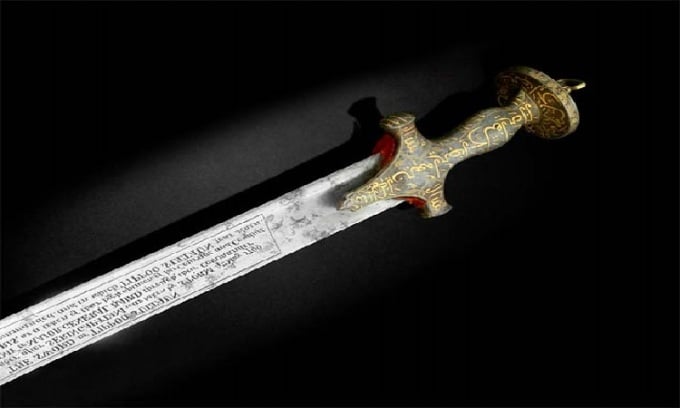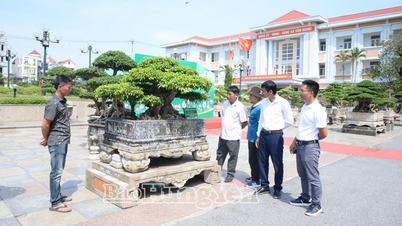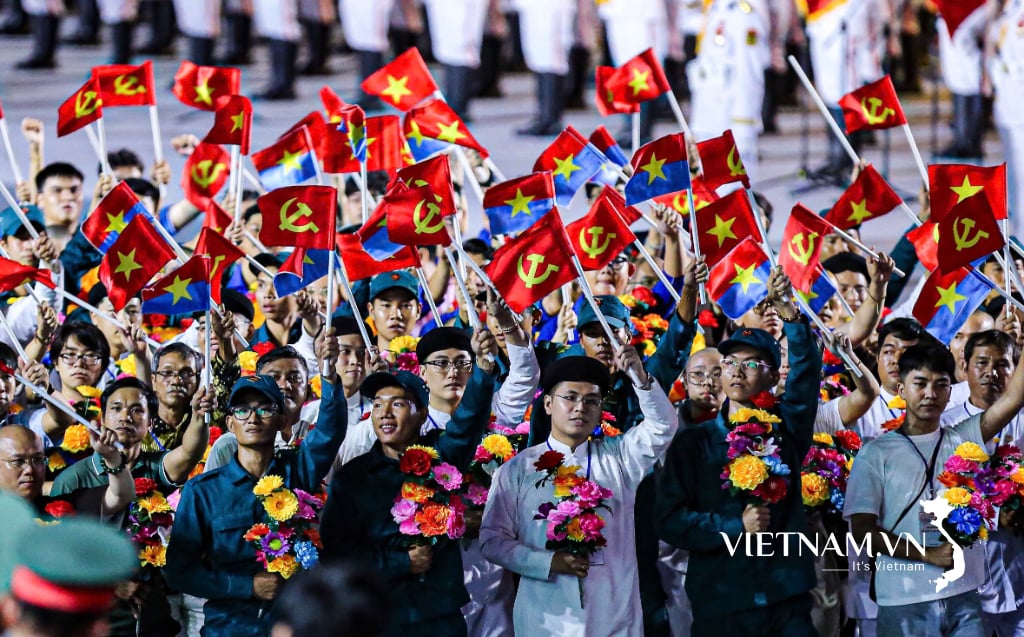A 200-year-old sword belonging to King Tipu Sultan fetched $17.5 million, 2.5 times the previous record, at an auction in London on May 23.

Tipu Sultan's exquisitely crafted sword. Photo: Bonhams
The Tipu Sultan sword was initially estimated to be worth $2.5 million. However, on May 23, the ancient weapon was auctioned in London and fetched a whopping $17.5 million. This not only broke the record for the highest price paid for a sword but also set a new world record for an Indian/Muslim object.
Previously, the most expensive sword ever sold was the 18th-century Boateng Saber. Sold at auction in 2006 ($5.93 million) and 2008 ($7.7 million), the sword had many decorative motifs and inscriptions referring to the Qing Dynasty's Qianlong Emperor. However, the Tipu Sultan sword, auctioned by Bonhams Islamic and Indian Art in London, surpassed that record. According to Oliver White, the company's head auctioneer, the sword demonstrates excellent craftsmanship.
Tipu Sultan, also known as the Tiger of Mysore, was an 18th-century king who ruled the kingdom of Mysore in India. Known for his tenacious resistance to British colonization, Tipu Sultan often used new technologies. He developed many military and economic innovations, including the use of rocket artillery against his neighbors. On 4 May 1799, during the Fourth Anglo-Mysore War, the capital city of Seringapatam (modern-day Srirangapatna) fell to the British, marking the end of Tipu Sultan's reign after he died in battle.
Tipu Sultan's sword was crafted by Mughal smiths and bears the inscription "Sword of the King" and a gold-plated hilt depicting the five qualities of the gods. Although forged in India, the blade reflects a 16th-century design imported from Germany.
In 1799, the sword was handed over by soldiers to the British commander Major General David Baird, who witnessed Tipu Sultan's death. Tipu was buried in Gumbaz, a mausoleum in Srirangapatna, Karnataka, India, which also houses the graves of his father Hyder Ali and his mother Fatima Begum.
An Khang (According to Ancient Origins )
Source link



![[Photo] Prime Minister Pham Minh Chinh attends the World Congress of the International Federation of Freight Forwarders and Transport Associations - FIATA](https://vphoto.vietnam.vn/thumb/1200x675/vietnam/resource/IMAGE/2025/10/08/1759936077106_dsc-0434-jpg.webp)
![[Photo] Prime Minister Pham Minh Chinh inspects and directs the work of overcoming the consequences of floods after the storm in Thai Nguyen](https://vphoto.vietnam.vn/thumb/1200x675/vietnam/resource/IMAGE/2025/10/08/1759930075451_dsc-9441-jpg.webp)

















![[INFOGRAPHIC] Bigme HiBreak Pro Color, Smartphone for book lovers](https://vphoto.vietnam.vn/thumb/402x226/vietnam/resource/IMAGE/2025/10/08/1759930976900_info-dt-docsach-02-jpg.webp)















![[Photo] Closing of the 13th Conference of the 13th Party Central Committee](https://vphoto.vietnam.vn/thumb/1200x675/vietnam/resource/IMAGE/2025/10/08/1759893763535_ndo_br_a3-bnd-2504-jpg.webp)

































































Comment (0)